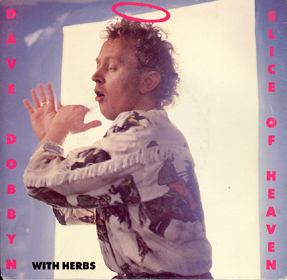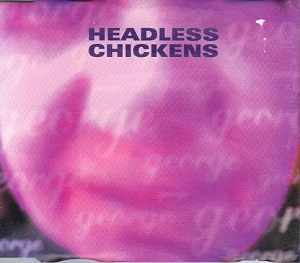Coconut Rough were a short-lived New Zealand pop/new wave band formed in 1982.

Peter Wadams, better known by his stage name P-Money, is a New Zealand hip-hop DJ and producer.

Demetrius C. Savelio, better known by his stage name Savage, is a New Zealand rapper and a former member of hip hop group the Deceptikonz. Savage was the first New Zealand hip hop artist to have a commercial single achieve platinum certification status in the United States. The "International Breakthrough" accolade of the Pacific Music Awards was created in his honour. Savage also has applied his recognisable voice in the electronic dance music space with 5× platinum hit ''Freaks'' with Timmy Trumpet, and 4 times platinum hit ''Swing'' with Joel Fletcher.

"Don't Dream It's Over" is a song by Australian rock band Crowded House, recorded for their 1986 self-titled debut studio album. The song was composed and written by New Zealand frontman Neil Finn and released in October 1986 as the fourth single from the album.
The following lists events that happened during 1983 in New Zealand.

"Slice of Heaven" is a single by New Zealand singer-songwriter Dave Dobbyn with the band Herbs, released in 1986 on the soundtrack of the animated motion picture, Footrot Flats: The Dog's Tail Tale. The single reached No. 1 on the New Zealand Singles Chart for eight weeks and on the Australian Singles Chart for four weeks. It appears on Dobbyn's 1988 album, Loyal.

"It's in His Kiss" is a song written and composed by Rudy Clark. It was first released as a single in 1963 by Merry Clayton that did not chart. The song was made a hit a year later when recorded by Betty Everett, who hit No. 1 on the Cashbox magazine R&B charts with it in 1964. Recorded by dozens of artists and groups around the world in the decades since, the song became an international hit once again when remade by Cher in 1990.

"Counting the Beat" is a single by New Zealand rock band The Swingers released in 1981 from their album Practical Jokers.

"George" is a song by New Zealand rock band Headless Chickens, released as the lead single from their third studio album, Greedy, in 1994. Charting as a double A-side with the Eskimos in Egypt mix of their 1991 song "Cruise Control", the single reached number one in the band's native New Zealand for four weeks in 1994 and 1995 and received a gold certification from the Recording Industry Association of New Zealand (RIANZ). "George" was nominated for Single of the Year at the 1995 New Zealand Music Awards, losing to Purest Form's "Message to My Girl". In 1997, the song was released in Australia, where it peaked at number 67 on the ARIA Singles Chart.
Monte Video and the Cassettes were a New Zealand band that had a hit single "Shoop Shoop Diddy Wop Cumma Cumma Wang Dang".

"Stuck with You" is a song by American rock band Huey Lewis and the News, written by guitarist Chris Hayes and lead singer Huey Lewis. Released in 1986, it was the first single from the band's fourth album, Fore!. The song spent three weeks at number one on the US Billboard Hot 100, becoming the band's second number-one hit on the chart. Internationally, the song became the band's second top-20 hit in the United Kingdom, reaching number 12 on the UK Singles Chart, and peaked within the top 10 in Australia, Canada, Iceland, South Africa, and New Zealand.

"One Step Ahead" is a 1980 song by New Zealand art rock group Split Enz. It was released November 1980 as the lead single from their seventh studio album Waiata.
Shoop Shoop may refer to:

The discography of Guy Sebastian, an Australian singer, consists of nine studio albums, one compilation album, one live album, three EPs and 54 singles, including six as a featured artist and four charity singles. Sebastian won the first series of Australian Idol in 2003, and gained a record deal with Sony BMG. He has released ten albums which peaked in the top six of the ARIA Charts, including three which reached number one. The first seven achieved either platinum or multi-platinum certification. He has also released twenty three top twenty singles in Australia, with fourteen reaching the top ten, including six number ones. Sebastian is the only Australian male artist in Australian chart history to achieve six number-one singles, and is third overall for all Australian acts with only Kylie Minogue and Delta Goodrem having achieved more. He has also reached the top ten of the New Zealand charts with an album and six singles, including two number ones. Sebastian has sixty-nine platinum and seven gold certifications in Australia, the highest number for an Australian Idol contestant. "Battle Scars", a collaboration with Lupe Fiasco, spent 20 weeks in the Billboard Hot 100 chart, peaking at number 71 and achieving platinum certification. It also reached number 2 in Norway.

Stan Walker is an Australian-born New Zealand singer, actor, and television personality. In 2009, Walker was the winner of the seventh season of Australian Idol. He subsequently signed a recording contract with Sony Music Australia. In December 2009, Walker released his debut studio album, Introducing Stan Walker, which included the hit single, "Black Box". The album debuted at number three on the Australian ARIA Albums Chart and was certified platinum by the Australian Recording Industry Association (ARIA). It also appeared on the New Zealand Albums Chart at number two and was certified triple platinum by the Recording Industry Association of New Zealand (RIANZ).

"Holding You" is a song by New Zealand singer-songwriter Ginny Blackmore and Australian–New Zealand recording artist Stan Walker. It was released as a single by Sony Music Entertainment on 4 April 2014.

"Cruise Control" is a song by New Zealand band Headless Chickens. Written by members Chris Matthews and Michael Lawry, the track was released as the second single from the band's second studio album, Body Blow (1991), in 1991 and reached number six on the New Zealand Singles Chart. Three years later, the song was remixed and re-released as the "Eskimos in Egypt" mix. This version of the song peaked at number 26 in Australia and topped the New Zealand chart as a double A-side with "George".

"Cold" is a song by New Zealand pop music group Deep Obsession. It was written by two of the band's three members—Christopher Banks and Zara Clark—and produced by Banks and Australian disc jockey Paul Goodyear. The song was released as the group's second single from their debut studio album, Infinity (1999), almost a year after their previous single, a cover of "Lost in Love" by British-Australian soft rock duo Air Supply.














